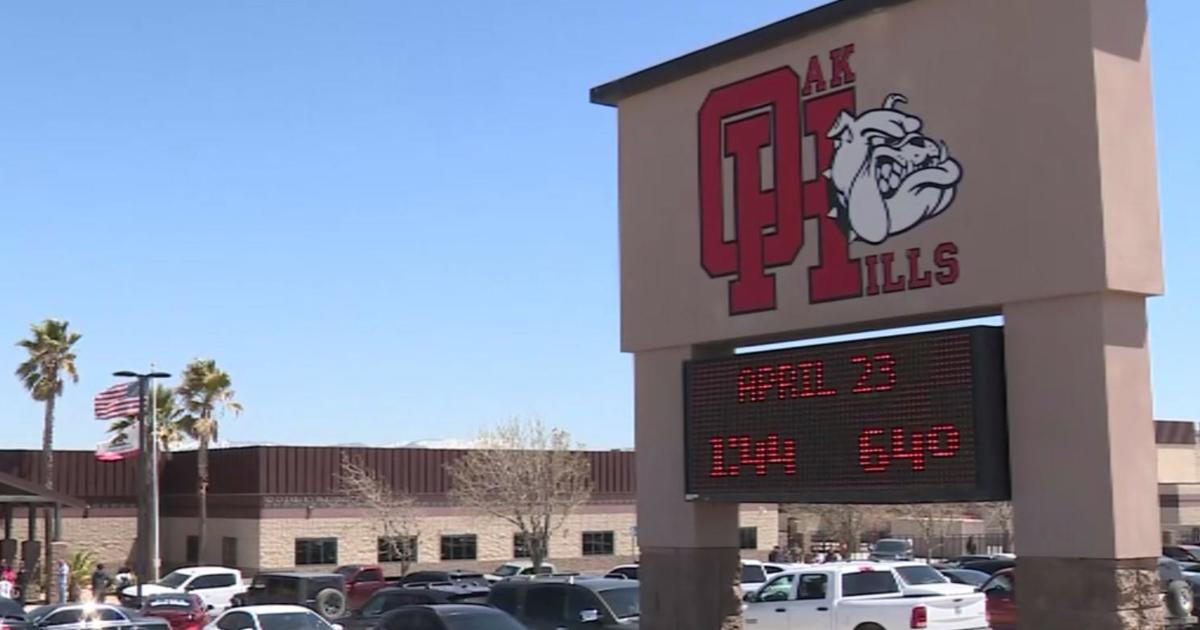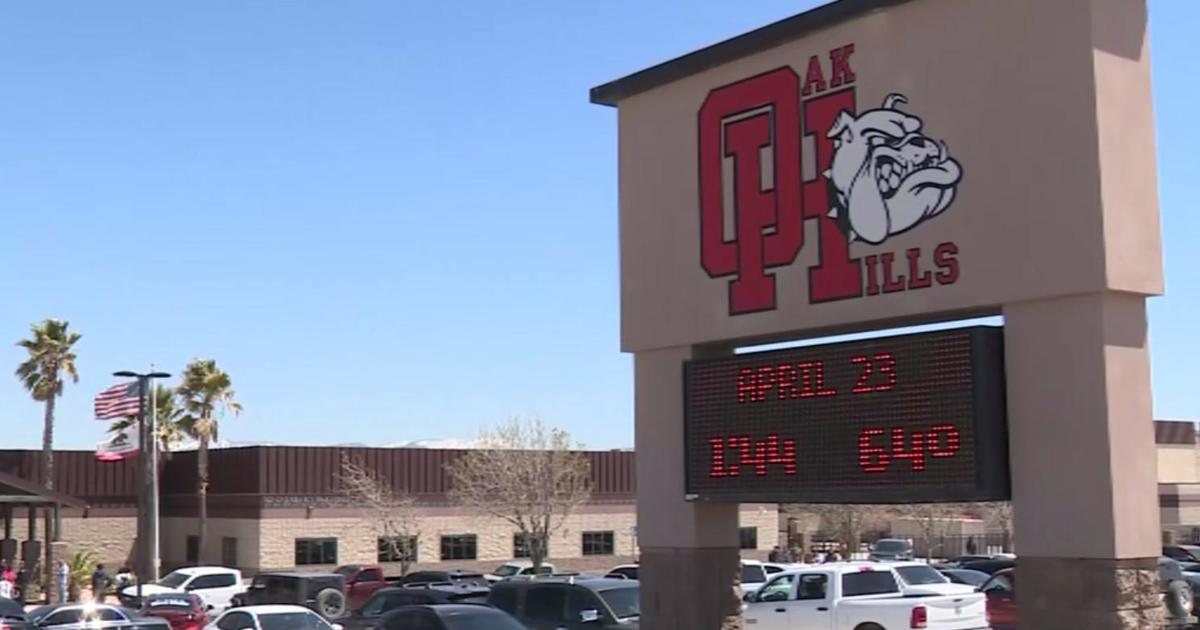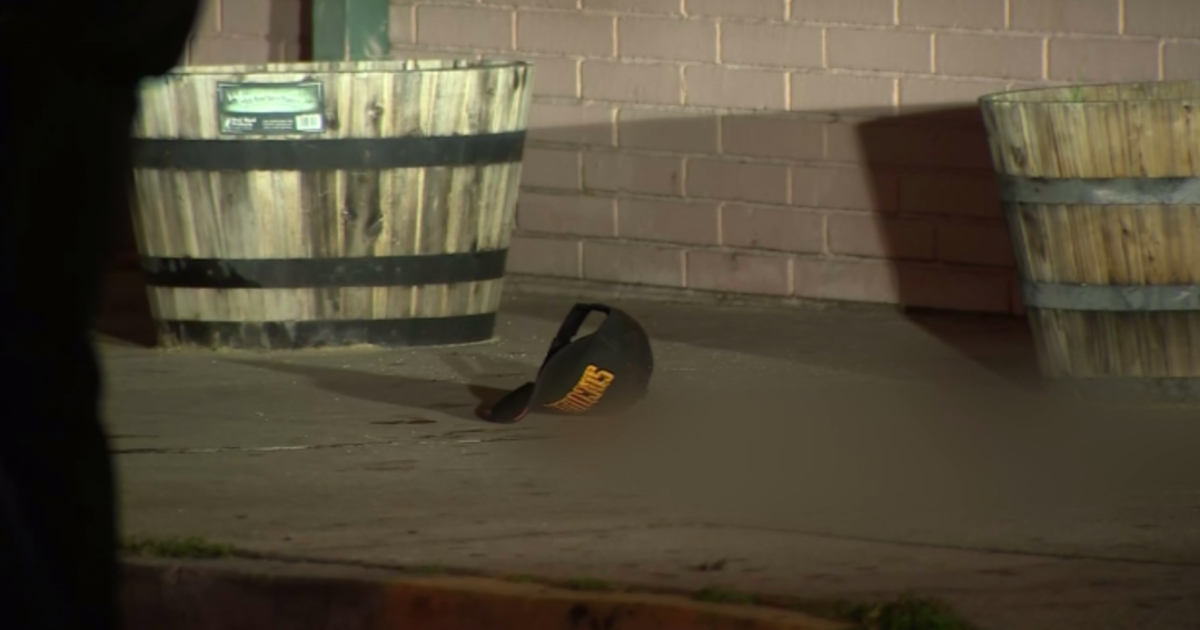Schools Seek Extra Cash Through Campus Ads
LOS ANGELES (AP) — Forget about PTA bake sales.
School fundraisers these days are more likely to be about offering naming rights, hawking logoed merchandise, wrapping lockers in supergraphics or posting ads on buses.
In Southern California, the Sweetwater Union High School District is set to approve its first on-campus advertiser this week under a policy to allow advertising inside the district's 15 high schools.
Sweetwater, in San Diego County, is the latest cash-squeezed district to resort to commercials to generate revenue. Reeling from state budget cuts with no relief in sight, school districts across the nation are getting inventive about plugging budget holes.
Some are entrepreneurial, like three Illinois districts that have teamed up to run a wind farm, while others are seeking benefactors, such as a central Florida school that has been "adopted" by a local church.
Still others are renting out their facilities -- Los Angeles-area schools are signing up for use as movie and TV sets -- while Beverly Hills is trying to milk its prestige by hiring a consultant to develop a branded merchandising line.
Some districts have even turned to charging parents. The American Civil Liberties Union of Southern California earlier this month sued some 50 school districts for allegedly violating the state's guarantee to a free public education over fees charged for textbooks, uniforms and extracurricular activities.
But Sweetwater and other districts are finding that one of the most lucrative -- though controversial -- cash-generators is advertising to students.
While advertising is no stranger to schools, its traditional domain has been extracurricular activities. Athletic teams and scoreboards often bear the name of a local business sponsor to help defray costs, and students sell ads in yearbooks and school play programs.
But the recent financial crunch is pushing districts to allow advertisers direct access on campuses, which is raising concerns over the role of schools in promoting commercial brands and products to a captive audience of impressionable youngsters.
"I can turn off the TV, I can take away the magazine, but I can't not send my kids to school," said Lisa Ray, founder of Parents for Ethical Marketing, a Minnesota-based group. "I totally understand the position school districts are in, but this is just not a good solution."
Sweetwater's first proposed advertiser is Platt College, a local art and design school that would pay $6,000 to place two banners in each high school, with the location to be determined by the school, but not in classrooms, said district spokeswoman Lillian Leopold.
The district aims to make $1 million a year from selling advertising, which will help make up $32 million in state funding cuts over the last three years.
Parents said they're generally in favor of the idea in light of the funding hit. Sally Boucree, parent of a senior at Sweetwater's Otay Ranch High School, said she wouldn't like to see consumer-style ads, but ads for colleges are ideal.
"I don't like the idea of people pushing an agenda. We have enough commercials on TV as it is," she said. "But marketing education is awesome. It makes kids aware of opportunities."
Districts that have approved advertising say they've taken pains to ensure ads are consistent with their educational message and boards can reject an advertiser.
"If they're for things like healthy foods and post-secondary training and schools, I can live with that," said Ed Saxton, superintendent of St. Francis Independent School District 15 in suburban Minneapolis, where the board last week approved a one-year pilot program to wrap 10 to 15 percent of school lockers in supergraphic ads.
The ads, which will be subject to board scrutiny and approval, are projected to generate $180,000 to $200,000. "We've been flat-funded for four years now and we're running out of things to cut," Saxton said.
Not all districts are warm to the idea. Citing ethical concerns, the San Diego Unified School District last week rejected a proposal to allow on-campus advertising, while a bill in Oklahoma to allow school bus ads died earlier this year.
But for every naysayer, there are others who are gung-ho. Schools in Jefferson County, Colo., are reaping $500,000 from a four-year bus advertising contract with a local bank, while two high schools in Sheboygan, Wis., have cashed in on selling naming rights to auditoriums and other facilities, earning more than $1.4 million.
The San Diego County Office of Education is hoping to follow suit. It is seeking a sponsor to buy naming rights to its sixth-grade mountain camp for a seven-figure sum, said spokesman Jim Esterbrook.
The office has earned $200,000 over the past year from sponsorships of its sixth-grade mountain camp by Target, Kaiser Permanente and a local farmer's market. The money pays for "camperships" for low-income children. In return, sponsors get their logo on placemats in the camp's cafeteria and air spots on the county's instructional TV channel.
Other districts have smaller goals. Santa Rosa, Calif., City Schools last year started selling marquee sign sponsorships at $3,500 each to local businesses.
The marketing push is spawning a new industry of school advertising consultants, who line up advertisers for a slice of the revenue.
"We want to bring Fortune 500 clients into school districts," said Mickey Freeman, president and chief executive of Education Funding Partners, a Denver startup, who charges a 15 percent commission.
Advertisers are eager for a new way to reach students, consultants said. "It's all about timing," said Greg Meyer, president of recently formed School Media, which is pitching the locker-wrapping concept to Minnesota districts. "Five years ago, this wouldn't be an option."
Meyer plans to take his concept national in early 2011.
For opponents, it's a troubling trend that exploits the special reverence children hold for school.
"An ad is all the more powerful for kids if they see it in school. It's an implicit endorsement," said Josh Golin, associate director of Campaign for a Commercial-Free Childhood. "They may not understand that schools are doing this as a last resort."
(© Copyright 2010 The Associated Press. All Rights Reserved. This material may not be published, broadcast, rewritten or redistributed.)



